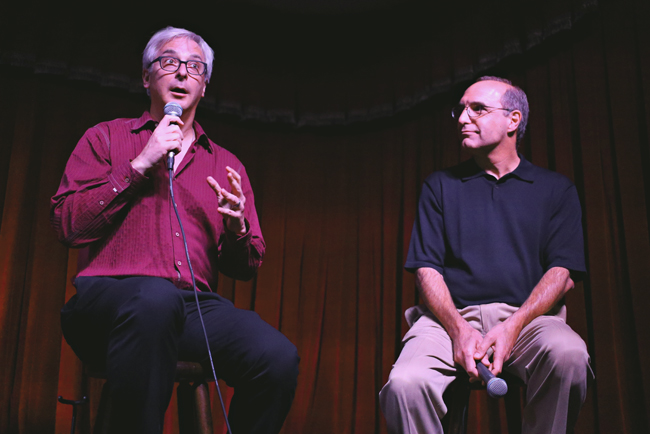In honor of Halloween, UT professors talked about the dimensions of fear at a KUT live radio discussion Tuesday.
Art Markman, a psychology and marketing administration professor, and music professor Bob Duke talked at a Views and Brews event about the different psychological manifestations of fear.
“Fear is multidimensional,” Markman said. “Fear is an emotion we experience when there is something out there in the world that we want to avoid, and we are not being successful at avoiding it.”
According to Markman, there are two different types of primary motivation systems that direct behavior. The first, an approach motivation system, involves actions sparked by positive feelings, such as the desire to see good friends. The second, an avoidance motivation system, involves actions taken to avoid undesirable possibilities. Markman said fear is a result of the avoidance motivation system.
Markman said at some level, people know fearful situations are not real, but they can still experience fright just by thinking about imagined possibilities.
“What makes fear really interesting is that we fear truly dangerous things, but we are also able to think our way into fear,” Markman said.
Duke said fear is an emotional stimulant, and sleep can weaken the connection between the memory and associated emotions, which can make remembering a frightening experience less traumatic, for example.
“We take joy out of being emotionally stimulated,” Duke said. “When we recall a memory, we reconsolidate and re-establish the memory.”
Duke said the way people deal with fear is, to some degree, an inherited trait.
“There is a genetic predisposition related to fear,” Duke said. “A person early on will avoid situations, and [their reaction to fear] becomes visible in their behavior.”
Markman said children experience fear at night because it is dark, the world gets quiet and their imagination is allowed to run wild.
“Children interpret things differently at night due to fear,” Markman said. “This is how the motivation systems work.”
Markman talked about the Terror Management Theory, which offers an explanation for why humans fear their own deaths. The theory says people’s awareness of their mortality impacts them psychologically.
“We make fun of death as an exposure therapy,” Markman said. “The Terror Management Theory is how we deal with thoughts of our own mortality.”
Rebecca Mclnory, executive producer and KUT host of Views and Brews, was the host at the event and questioned the professors about the aspects of fear.
“People relate to fear differently across the board,” Mclnroy said.
Markman and Duke are regularly featured on KUT’s “Two Guys on Your Head,” which airs weekly.





















